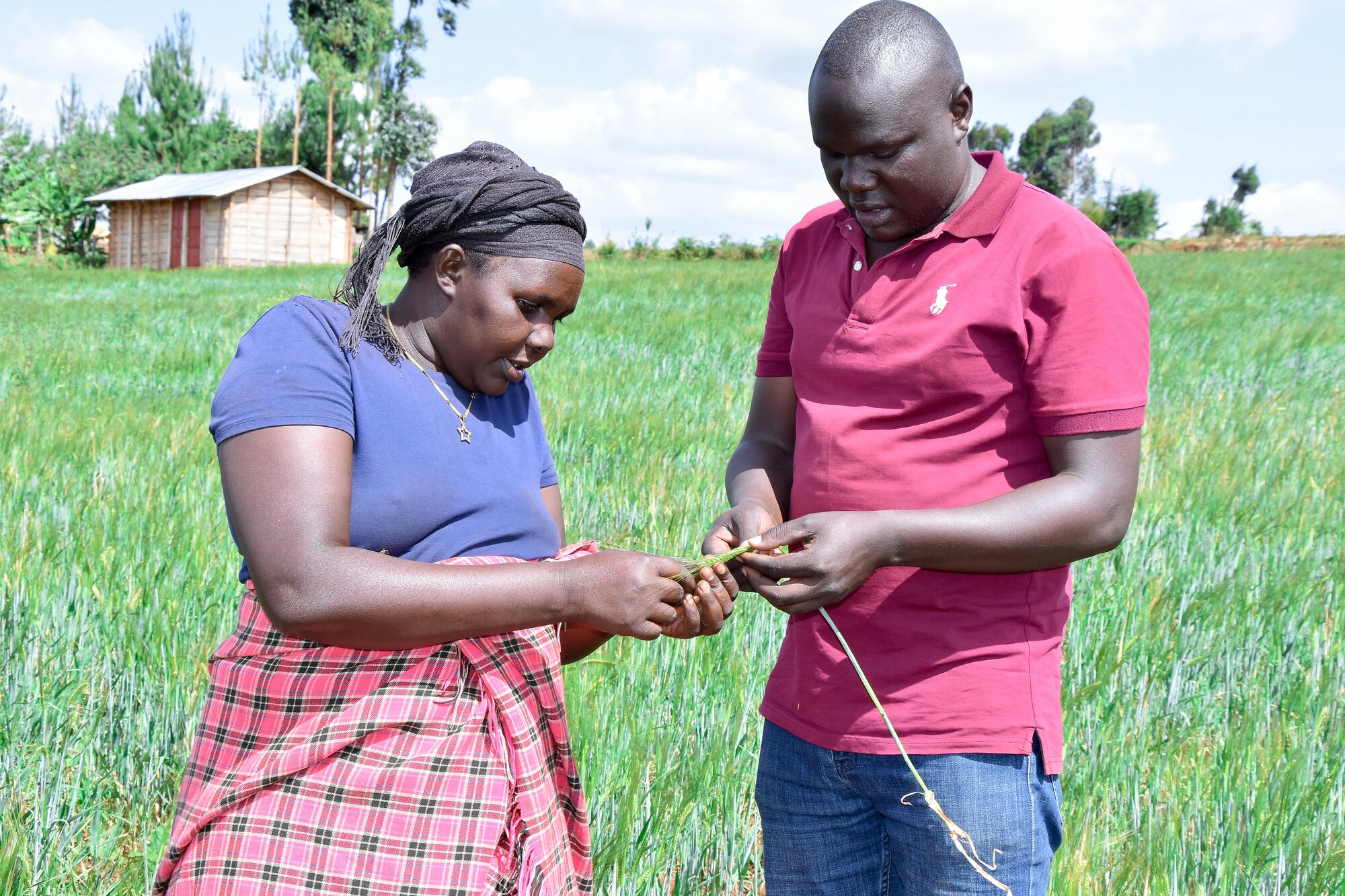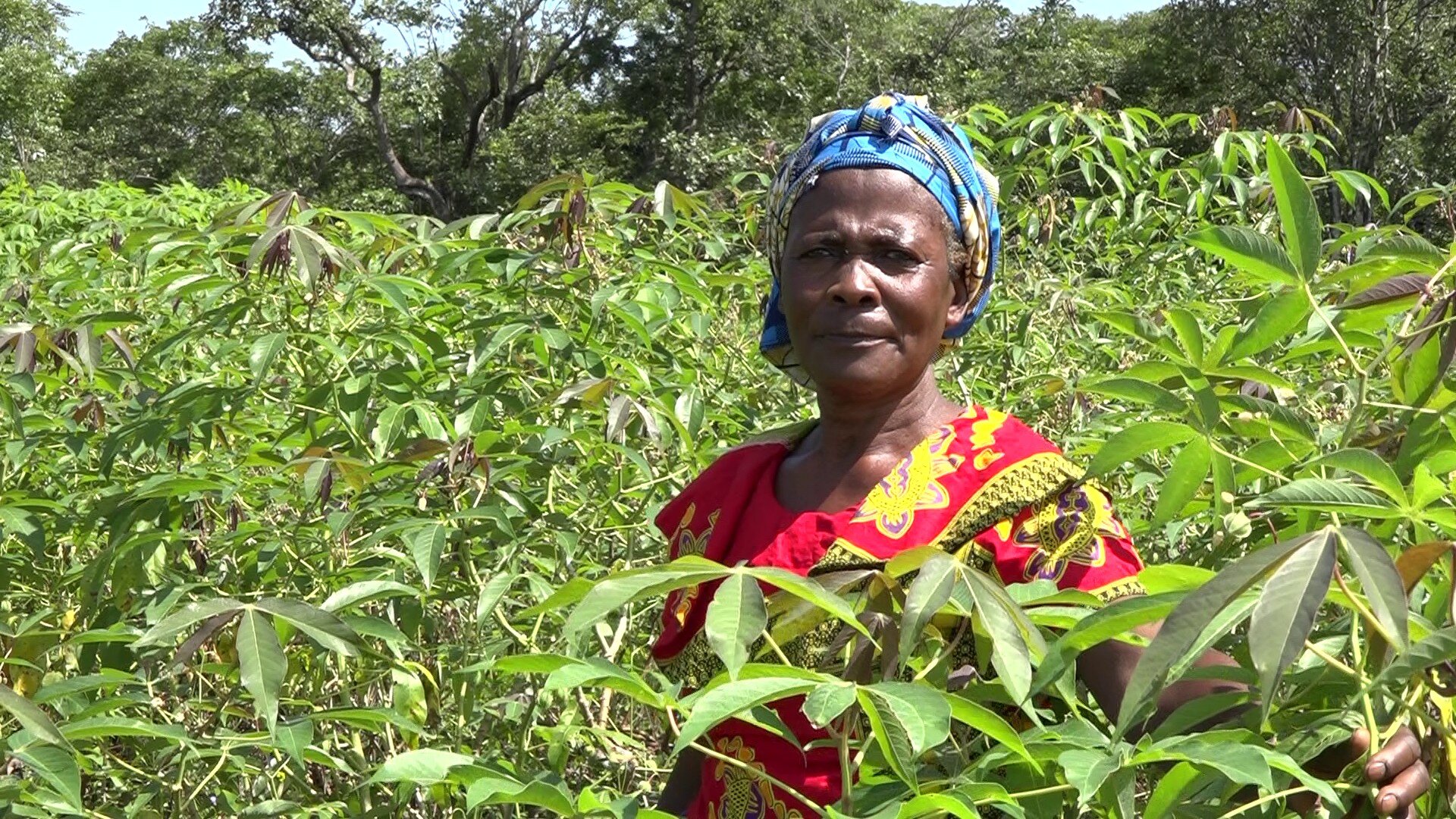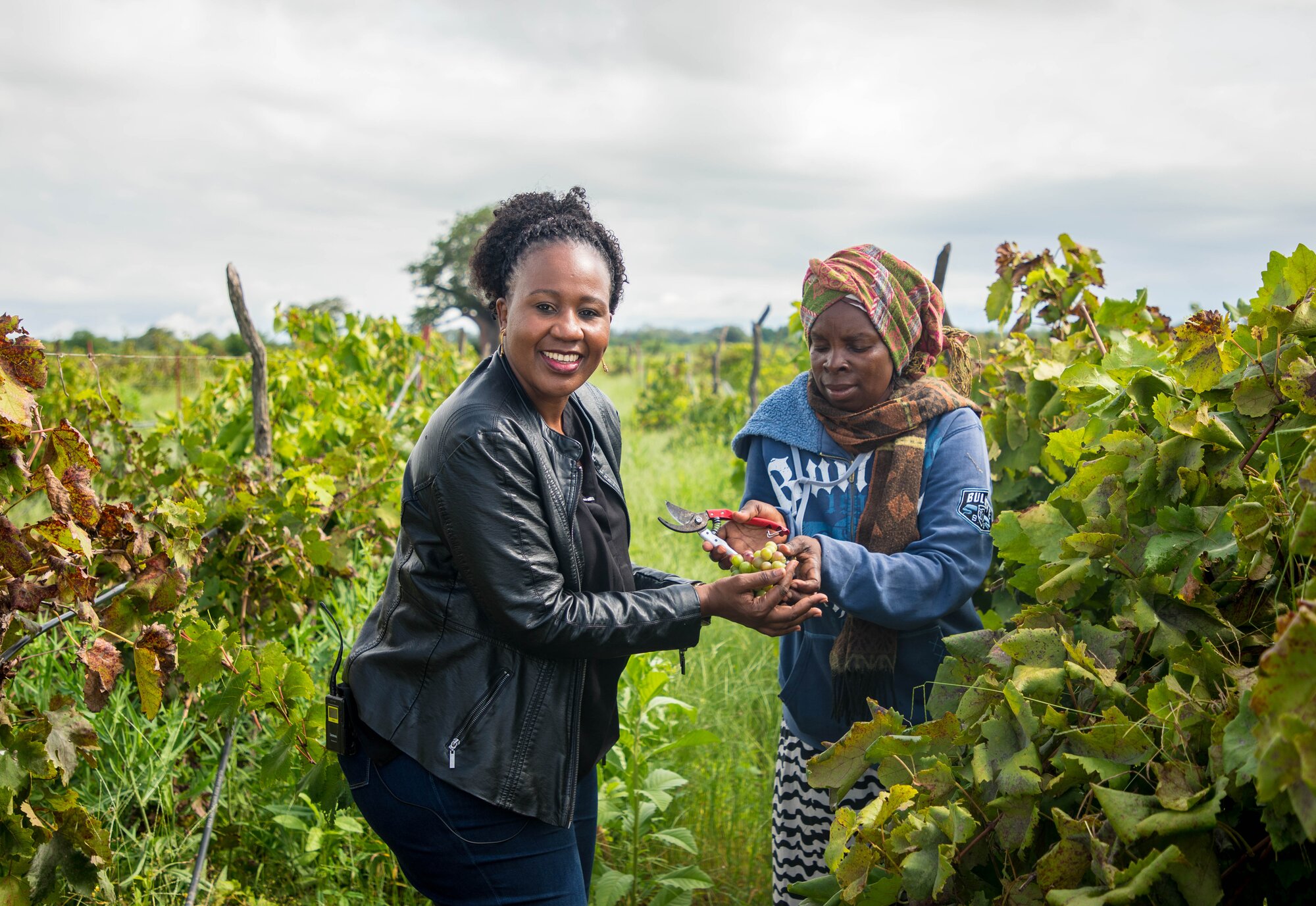To brew our beers, AB InBev depends on high-quality agricultural crops from thriving communities and healthy ecosystems. To ensure the resilience of local ingredients for the long-term, we take a farmer-centric approach, supported by a global team of expert agronomists, researchers and partners. All are working together to achieve our goal of having 100% of our direct farmers skilled, connected and financially empowered by 2025.
Women are vital to driving local economic development, and yet, in many communities worldwide, they lack access to the training, tools and financing needed to grow their businesses. To help, AB InBev offers programs specifically designed to empower female farmers in Africa to improve their economic circumstances and that of their families and communities across the continent.
“The barley program has had a huge impact on my livelihood”
In Uganda, AB InBev’s barley program is managed by our local brewer Nile Breweries Limited (NBL). It is designed to help ensure this vital ingredient used to brew our beers is produced with sustainability and responsibility in mind.
Since 2019, nearly 10,000 female farmers have benefited from financial training, sharing of best agricultural practices, improved access to markets and resources and the development of voluntary savings and loan associations.

One of the participants is Winnie Chelimo, a barley farmer from the Kapchorwa municipality. Before the program, Winnie says farmers in her community struggled to market their crops, prices were low and the level of knowledge around farming practices was limited. Today, buying centers near their farms provide more dependable markets to sell their crops and farmers frequently take part in training offered by NBL’s agronomists.
“The barley program has had a huge impact on my livelihood,” said Winnie. “Through barley farming I was able to get money to take my children to school, feed my family and buy clothing. My farm acreage has expanded from two to six acres, and I continue to see a bright future for further growth.”
“We used to waste a lot of agricultural land by not using it efficiently”
In Zambia, some beers are brewed with cassava, a locally grown tuberous root. Our local brewer, Zambian Breweries, offers a program to boost production of the crop by equipping farmers with technical and financial skills, using tools like BanQu, a blockchain-based platform that enables farmers to receive prompt payments and accurately keep track of transactions.

For 61-year-old Idah Kombe Simwela, managing a large-scale farm was something previously thought to be unattainable. But with support and interventions from Zambian Breweries, Idah and other women are improving their livelihoods by growing cassava.
“I belong to a registered women’s group called Twafweniko...and we were able to start gardens, keep chickens for sale as well as do village banking,” said Idah. “This has helped us a lot and we are also able to even give ourselves some loans.”
Her newfound knowledge has also made Idah realize how access to reliable information can be a game-changer for farmers like her.
“We used to waste a lot of agricultural land by not using it efficiently but now we have been guided on how to prepare ridges better...We are guided on how to prepare and plant the cassava stems,” she said. “We [meet in-person] for training but we also receive mobile text messages [to tell us] how to manage our crops better on our own.”
“In farming, information is key.”
The largest wine producer and purchaser of grapes in Tanzania is Tanzania Distilleries Limited (TDL), a subsidiary of our local brewer, Tanzania Breweries Limited. TDL has been pioneering the development of the nation’s wine industry, a commitment which includes supporting local grape growers, like Evelyne (Eva) Hilda Madeje.

Eva inherited five acres in Dodoma – the heart of Tanzanian wine country – from her mother in 2011. Since then, she’s grown the operation into a sprawling, 26-acre farm managed by her daughter, Irene Madeje-Mlola. It’s the only women-owned farm larger than five acres and one of the largest producing, single family-owned vineyards in the region.
“In farming, information is key,” said Irene. “We receive regular visits from TDL experts to support us with oversight of our crops, consultation on pesticides and fertilizers, and support during harvesting and pruning. This program has been a key pillar in our expansion plan at Eva’s Farm. Furthermore, in partnership with TDL, we are conducting various experiments at our farm to test different methods of increasing productivity as well as managing damaged soil patches.”
Here’s to Winnie, Idah, Eva, Irene and our many women farmers building thriving, prosperous businesses for a #FutureWithMoreCheers!

